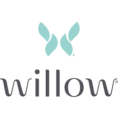Crowdcube & Seeders Merge; Havas Media Launches Global Ecommerce Offering
by Lindsay Rowntree on 9th Oct 2020 in News


The FGB Digest brings you the latest news on the world’s fastest growing direct-to-consumer and challenger brands. In this week’s edition: Seedrs and Crowdcube to merge; Havas launches ecommerce offering; Ÿnsect raises €190.6m to grow insect farm; Mosa Meat receives €46.5m funding; Indian fintech Uni bags USD$18.5m investment; and Ola Cabs is banned in London.
Seedrs and Crowdcube agree merger
Two companies often referenced on FastGrowthBrands, Seedrs and Crowdcube, have agreed to merge. The UK's two biggest crowdfunding platforms will create a private funding powerhouse, with the combined entity led by current Seedrs CEO Jeff Kalisky. Crowdcube founder and CEO Darren Westlake will become executive chairman. Equity crowdfunding in the UK has enabled many of the fastest growing brands to get their companies started on the growth ladder, many of which have gone on to become household names, such as fintech unicorns Monzo and Revolut. Crowdcube and Seedrs are fairly equally matched, with the former having launched in 2011 and having facilitated over 1,120 deals, with almost £1bn invested on the platform. Seedrs launched a year later, has funded over 1,140 deals, with a near equal figure having been invested on the platform. Combined, the two companies will become the largest crowdfunding platform globally.
Both platforms have greatly benefited from UK tax initiatives, the Enterprise Investment Scheme (EIS) and the Seed Enterprise Investment Scheme (SEIS), which seek to enable support of early-stage companies by offsetting investor risk. The news of this merger comes at the same time as confirmation that the EU has approved new crowdfunding rules, with a funding cap set at €5m across all member states. This intends to allow for more cross-border investment and remove the friction of regulatory fragmentation within each market. With the UK leaving the EU, this new ruling will not affect Seedrs' and Crowdcube's operations, but could provide interesting future expansion plans for the new entity.
Media agency Havas launches global ecommerce offering
 Global media agency, Havas, announced this week that it is to launch a global ecommerce offering, Havas Market, in its continued commitment to create "more meaningful shopping experiences for consumers and [drive] meaningful growth for brands in commerce," according to a press release.
Global media agency, Havas, announced this week that it is to launch a global ecommerce offering, Havas Market, in its continued commitment to create "more meaningful shopping experiences for consumers and [drive] meaningful growth for brands in commerce," according to a press release.
Havas Market will act as a consultancy, offering clients support in transforming their commerce approach, from DTC and retailer marketplaces, to in-store. Havas Media's former head of social will lead the new offering in North America, as EVP managing director, commerce. The aim of Havas Market is to help brands to rethink the retail journey and reach an engaged audience, with the full-service offering supporting brands across product insight; content experience; and when, where, and how to drive sales across the full shopping ecosystem.
Ÿnsect raises €190.6m to grow insect farm
 Here's something you probably weren't expecting to read, but French start-up, Ÿnsect, has raised a whopping €190.6m (£171.8m) to build the world's largest insect farm. Why? Because insects could be the next food revolution, but not in the way you might think. The company farms insects to manufacture pet, fish and livestock food, as well as crop growing, and this latest Series C+ round will see it complete the record-breaking insect farm by 2022 and help it fulfil the goal of becoming a global protein provider. By using Ÿnsect's products, rather than more traditional animal proteins and chemical fertilisers, there are claims of increased yield of crops and fish stocks, as well as fewer diseases, all the while reducing environmental damage. This Series C extension brings Ÿnsect's total funding to €361.4m (£325.8m).
Here's something you probably weren't expecting to read, but French start-up, Ÿnsect, has raised a whopping €190.6m (£171.8m) to build the world's largest insect farm. Why? Because insects could be the next food revolution, but not in the way you might think. The company farms insects to manufacture pet, fish and livestock food, as well as crop growing, and this latest Series C+ round will see it complete the record-breaking insect farm by 2022 and help it fulfil the goal of becoming a global protein provider. By using Ÿnsect's products, rather than more traditional animal proteins and chemical fertilisers, there are claims of increased yield of crops and fish stocks, as well as fewer diseases, all the while reducing environmental damage. This Series C extension brings Ÿnsect's total funding to €361.4m (£325.8m).
Mosa Meat receives €46.5m funding
 Netherlands-based Mosa Meat has raised a not-insignificant €46.5m (£41.9m), as part of a wider Series B round. This latest funding was led by Blue Horizon Ventures and it brings the company's total funding to €64.5m (£58.1m) to date. If you don't know Mosa Meat by name, you may well know it as the company which unveiled the first ever lab-produced hamburger (costing £215,000) back in 2013, using foetal bovine serum. With scale and advancements in technology, the cost of production has significantly reduced, as has the base ingredient, to something non-animal. Mosa plans to use the new funding to scale production to meet rising retail demand, as well as extend its current pilot production facility in Maastricht, develop an industrial-scale production line, expand its team of scientists, and raise consumer awareness of lab-cultivated beef.
Netherlands-based Mosa Meat has raised a not-insignificant €46.5m (£41.9m), as part of a wider Series B round. This latest funding was led by Blue Horizon Ventures and it brings the company's total funding to €64.5m (£58.1m) to date. If you don't know Mosa Meat by name, you may well know it as the company which unveiled the first ever lab-produced hamburger (costing £215,000) back in 2013, using foetal bovine serum. With scale and advancements in technology, the cost of production has significantly reduced, as has the base ingredient, to something non-animal. Mosa plans to use the new funding to scale production to meet rising retail demand, as well as extend its current pilot production facility in Maastricht, develop an industrial-scale production line, expand its team of scientists, and raise consumer awareness of lab-cultivated beef.
Indian fintech Uni bags USD$18.5m
 An Indian startup, that is currently is stealth mode, has just secured USD$18.5m (£14.2m) in seed funding, as it plans to revolutionise the credit card market in India. The fintech, named Uni, claims the amount raised is one of the largest seed fund rounds in India. It was led by Lightspeed Ventures and Accel. The credit card market in India is bound by a lot of legacy infrastructure, and is not heavily used by Indians, with only 58 million credit cards used by 34 million people. In contrast, more than 100 million Indians pay digitally and electronically. Indeed, the value of payments that bypassed cards entirely rose 163% in 2019, to USD$286bn (£219.5bn). Uni aims to target this digitally savvy generation and make credit cards more consumer friendly. In a country where over 190 million people are unbanked (i.e. don't have bank accounts), trying to create a credit card market from a rather small base is an interesting one. Ex-Ola and PayU exec, and Uni co-founder, Nitin Gupta, believes reinventing the credit card and adding new functionalities to it will see the Indian market expand from 58 million credit cards to 200 million. Watch this space.
An Indian startup, that is currently is stealth mode, has just secured USD$18.5m (£14.2m) in seed funding, as it plans to revolutionise the credit card market in India. The fintech, named Uni, claims the amount raised is one of the largest seed fund rounds in India. It was led by Lightspeed Ventures and Accel. The credit card market in India is bound by a lot of legacy infrastructure, and is not heavily used by Indians, with only 58 million credit cards used by 34 million people. In contrast, more than 100 million Indians pay digitally and electronically. Indeed, the value of payments that bypassed cards entirely rose 163% in 2019, to USD$286bn (£219.5bn). Uni aims to target this digitally savvy generation and make credit cards more consumer friendly. In a country where over 190 million people are unbanked (i.e. don't have bank accounts), trying to create a credit card market from a rather small base is an interesting one. Ex-Ola and PayU exec, and Uni co-founder, Nitin Gupta, believes reinventing the credit card and adding new functionalities to it will see the Indian market expand from 58 million credit cards to 200 million. Watch this space.
Ola Cabs banned in London
 Indian ride-sharing startup, Ola, has been banned from the streets of London, after TfL (Transport for London) refused to renew the company's licence, citing "potential public safety consequences." After arriving in the UK in 2018 and only making it to London in February 2020, the company has been extensively pushing themselves as an Uber and black cab alternative, as well as going on the offensive to get drivers to register. It is the latter, it seems, which could have been their downfall, as Ola has been accused of using unlicensed cars and drivers in over 1,000 passenger trips in the capital, despite being strong proponents of safety, compared with competitors. The company has raised USD$3.8bn (£2.9bn) to date, including from SoftBank's Vision Fund, and it is expected it will appeal the decision.
Indian ride-sharing startup, Ola, has been banned from the streets of London, after TfL (Transport for London) refused to renew the company's licence, citing "potential public safety consequences." After arriving in the UK in 2018 and only making it to London in February 2020, the company has been extensively pushing themselves as an Uber and black cab alternative, as well as going on the offensive to get drivers to register. It is the latter, it seems, which could have been their downfall, as Ola has been accused of using unlicensed cars and drivers in over 1,000 passenger trips in the capital, despite being strong proponents of safety, compared with competitors. The company has raised USD$3.8bn (£2.9bn) to date, including from SoftBank's Vision Fund, and it is expected it will appeal the decision.








Follow Fast Growth Brands